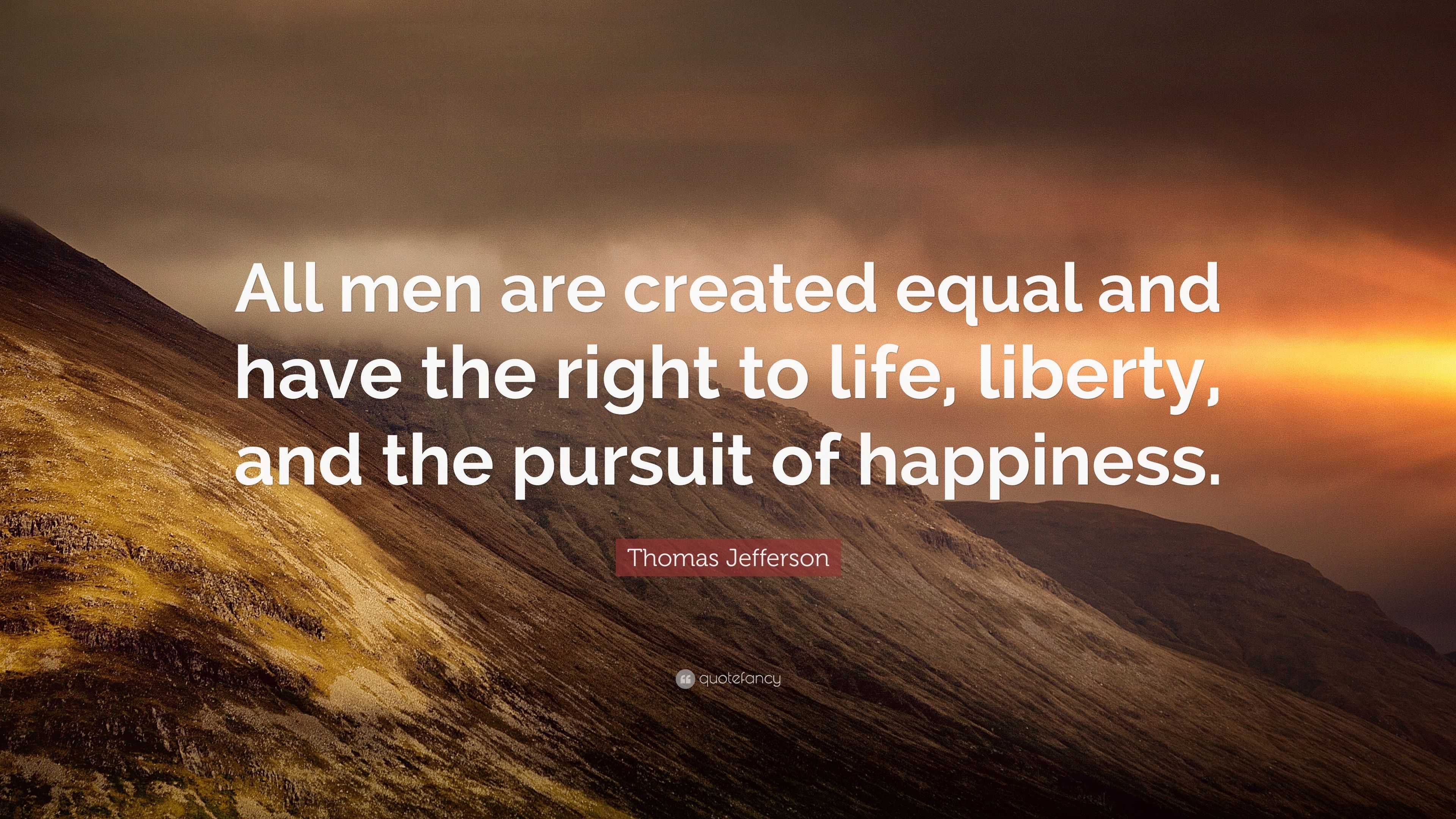
Marty added that the upending of abortion rights has given the unborn “greater protection than most,” a contention echoed in part by Roe opponents who have said that “All men are created equal” includes the unborn.Īmong contemporary politicians and other public figures, the words are applied to very different ends. One could enjoy equality in one but not another.” In Lincoln’s time, according to historian Eric Foner, “they made a careful distinction between natural, civil, political and social rights. By Abraham Lincoln, who invoked them in the Gettysburg Address and elsewhere, but with a narrower scope than what King imagined a century later.

Martin Luther King Jr., who in his “I Have a Dream” speech held up the phrase as a sacred promise to Black Americans. By feminists at the Seneca Falls Convention of 1848 who stated “We hold these truths to be self-evident that all men and women are created equal.” By civil rights leaders from Frederick Douglass to the Rev. The words have since been endlessly adapted and reinterpreted. “All men are created equal.” Few words in American history are invoked as often as the preamble to the Declaration of Independence, published nearly 250 years ago, and few more difficult to define. Anthony quote, "No self-respecting woman should wish or work for the success of a party who ignores her sex," in front of the NWP headquarters in Washington in June 1920. Spahn finds Haynes’ response “philosophically innovative,” because he isolated the passage containing the famous phrase from the rest of the Declaration and made it express “timeless, universally binding norms.”įILE - Chairwoman Alice Paul, second from left, and officers of the National Woman's Party hold a banner with a Susan B. Soon after July 4, Haynes wrote “Liberty Further Extended: Or Free Thoughts on the Illegality of Slave-Keeping,” an essay not published until 1983 but seen as reflecting the feelings of many in the Black community, with its call to “affirm, that Even an affrican, has Equally as good a right to his Liberty in common with Englishmen.” Black Americans were among the first to change them, notably the New England-based clergyman Lemuel Haynes.

Once the Declaration had been issued, perceptions began to change.

Spahn, like such leading Revolutionary War scholars as Jack Rakove, believes that “all men are created equal” originally referred less to individual equality than to the rights of a people as a whole to self-government. Kennedy Institute in Berlin and author of the upcoming “Black Reason, White Feeling: The Jeffersonian Enlightenment in the African American Tradition,” says that a draft version of the Declaration made clear that Jefferson meant “all humans” were created equal but not necessarily that that all humans were equal under the law. He added that “did not mean he did not recognize his enslaved people to be people, just that they could only enjoy those universal, natural rights elsewhere, in a country of their own: emancipation and expatriation.” For the slave owning Jefferson “and most of his fellow patriots, enslaved people were property and therefore not included in these new polities, leaving their status unchanged,” Onuf says. The Declaration was an indictment of the British monarchy, but not a statement of justice for all. The words in some form date back centuries before the Declaration and were even preceded in 1776 by Virginia’s Declaration of Rights, which stated that “all men are by nature equally free and independent.” Peter Onuf, a professor emeritus at the University of Virginia whose books include “The Mind of Thomas Jefferson,” notes that Jefferson himself did not claim to have said something radically new and wrote in 1825 that the Declaration lacked “originality of principle or sentiment.” Thomas Jefferson helped immortalize the expression, but he didn’t invent it. “Individualism is baked into that phrase, but also a broader, more egalitarian vision. “We say ‘All men are created equal’ but does that mean we need to make everyone entirely equal at all times, or does it mean everyone gets a fair shot?” says Michael Waldman, president of the Brennan Center for Justice, which promotes expanded voting rights, public financing of political campaigns and other progressive causes. It’s as if “All men are created equal” leads us to ask: “And then what?” How we use them often depends less on how we came into this world than on what kind world we want to live in. The music, and the economy, of “all men are created equal” make it both universal and elusive, adaptable to viewpoints - social, racial, economic - otherwise with little or no common ground. Few words in American history are invoked as often as those from the preamble to the Declaration of Independence, published nearly 250 years ago.


 0 kommentar(er)
0 kommentar(er)
